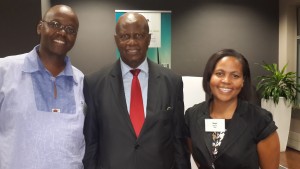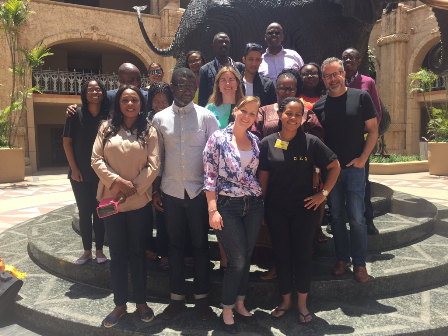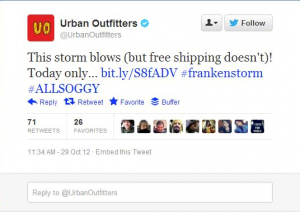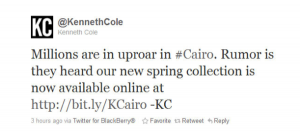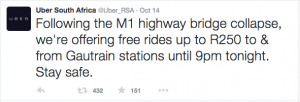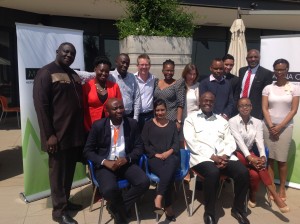This year promises to be exciting for the PR industry. We’ve seen some shifts happening over the last couple of years, and in 2016 these are expected to intensify.
The world-wide economy has forced agencies to become more creative with decreasing budgets. Clients expect us, as industry experts, to not only guide and consult, but also ensure that we provide a holistic approach to cut through the clutter and reach their consumers in engaging ways.
Here are a few trends we expect to see emerge or intensify in the industry this year:
The PR hybrid
In 2016 we will see PR and social media become synonymous with each other. We’ve seen the growing need over the last few years for these two spheres to work seamlessly together in order to achieve brand objectives. The emergence of ‘hybrid consultants’ will become more commonplace. These are PR consultants who are also skilled when it comes to social media and are able to advise on both disciplines.
Bloggers and influencers
The industry has moved away from only having editors from print publications in our rolodexes – don’t get me wrong, we can’t do our jobs without them – but added into the mix is a whole new breed of self-appointed critics and ‘journalists’ on our contact lists.
The prevalence of social media means that these ‘celebs’ are accessible to their fans and followers. Clients will realise more and more the value of investing in influencers who deliver high return on investment (ROI), and with ad-blockers (apps that block advertisements on websites) becoming the norm with consumers, native advertising and advertorials are some of the most effective ways for clients to get their message across.
It’s undeniable that in this age when people spend more time online than watching television, advertising in the traditional sense doesn’t hold the punch it used to, although it definitely still plays an important role. Consumers are now looking to their favourite websites, blogs and influencers with regard to making purchasing decisions, regarding these influencers as their peers and seeing them as credible. Thus, it is worth tapping into their audiences.
Short and sweet
One of the biggest take-outs of social media is that it’s a convenient manner for subscribers to read about their interests, catch up with their favourite celebrities or engage with brands in short bursts. Some may think that this is due to the average person becoming a bit lazier, but the reality is that the average person’s lifestyle is incredibly busy, leaving them with little time to read a full-page article or track down information to find out what’s happening in the world. They prefer to get the bullet points and carry on with their day.
This will lead to the following trend becoming bigger this year: short, interactive videos and thought-provoking images accompanying press releases aimed at grabbing the attention of the editor, influencer or blogger with whom public relations practitioners engage.
PR strategies will include social media platforms other than Twitter and Facebook. The recommendations will depend on what would work best for a client’s brand, and will vary from Snapchat, Instagram, Vine, and Shazam to Periscope. The uptake on new social media platforms in South Africa is slightly slower than in the rest of the world, but that gives us time to study what works and what doesn’t in different markets before we plunge in headfirst.
The second screen
According to a study done by Effective Measure, 81.5% of the population was accessing the internet through their smartphones in 2014, and only 18.5% doing the same by way of traditional methods, like desktops etc. This means that smartphones are no longer the so-called ‘second screen’, and haven’t been for a while, but are the primary screen to most consumers. We need to adjust our PR strategies accordingly.
Don’t underestimate the podcast
We predict that this year will be the year of the podcast. People lead unbelievably busy lives, as mentioned earlier, and they want to access information in the most convenient way possible. Listening to audio books has been popular for years, and now we have the podcast. It’s basically a spoken blog and there are thousands of them on every conceivable topic. It’s the ultimate in convenience, as they can be listened to in the car, at the gym, sitting at your desk at work and at home. It gives the consumer the freedom to multitask while listening.
In conclusion, PR is and will always be exciting, as it’s constantly evolving and adapting to the environment we find ourselves in. It is our job as consultants to keep our fingers on the pulse of pop culture and the new ways people are communicating, so we can provide our clients with expert advice and exceed their expectations. PR will continue to get more interesting over the next couple of years with virtual reality (VR) coming into the mix in the not too distant future, so remaining clued-up and prepared for action is a PR consultant’s way of life!
By Anne Dolinschek, Senior Account Manager
